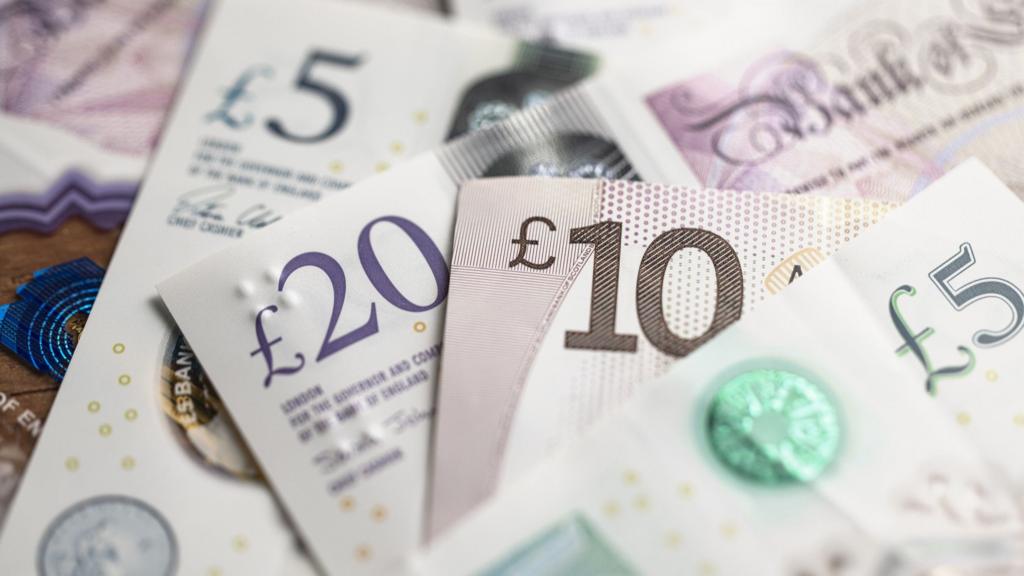“`html
Bank of England banknotes are poised for their first significant redesign in over half a century.
Since 1970, prominent historical figures, such as Sir Winston Churchill on the current £5 note, have been a staple feature, but this could be about to change.
The public is being consulted on potential new themes, including nature, innovation, and pivotal historical events.
This raises the prospect of British wildlife, iconic bridges, or even quintessential dishes like bangers and mash gracing the next series of £5, £10, £20, and £50 notes.
The monarch has been depicted on Bank of England notes since 1960. A decade later, images of historical figures, beginning with William Shakespeare, were introduced on the reverse side.
However, the Bank’s choices have occasionally sparked controversy. The lack of female representation, aside from Queen Elizabeth II, on banknotes in 2013 drew significant criticism.
Now, the Bank is suggesting that the next series of notes could explore a new thematic direction. While honoring notable historical figures remains an option, the Bank has proposed alternative subject matters including:
The public is invited to share their opinions and suggest their own themes, which is likely to inspire humorous proposals—Notey McNoteface is almost certain to be mentioned—and generate debate.
“Banknotes are more than just an important means of payment. They serve as a symbolic representation of our collective national identity and an opportunity to celebrate the UK,” stated Victoria Cleland, the Bank’s chief cashier, whose signature is featured on the notes.
“I am really keen to hear what themes the public would like to see represented.”
Ms. Cleland described banknotes as “little pieces of art in our pocket,” while acknowledging the added considerations of accessibility and security features.
Speaking to the BBC, she expressed an “open mind” regarding the new theme, clarifying that the inclusion of historical figures remains a possibility.
However, she emphasized the importance of broadening the selection, ensuring any chosen theme is enduring and non-divisive.
Banknotes issued in Scotland and Northern Ireland already feature images of landmarks and animals such as otters, while Euro banknotes showcase architectural styles.
Some banknotes around the world boast vibrant and elaborate designs.
The Bermuda Monetary Authority’s $5 note was recognized as the International Bank Note Society’s Banknote of the Year for 2023.
Predominantly pink, it features a blue marlin, dolphins, and tuna fish, along with a profile of King Charles III. The reverse side of the vertically designed note integrates butterflies, flora, Horseshoe Bay, and a boat passing beneath Somerset Bridge.
The Bank of England’s notes have traditionally been more understated, featuring abstract geometric designs, lions, or Britannia in the past.
The current series of circulating notes features historical figures, in ascending order of value: Churchill, Jane Austen, JMW Turner, and Alan Turing.
This public consultation pertains to the Bank’s next series of banknotes, which will continue to include an image of the monarch. Individuals can submit their feedback via an online form on the Bank’s website or by post, until the end of July.
The final decision regarding the design of the banknotes rests with the Bank’s governor.
There are over 4.7 billion Bank of England notes currently in circulation, with a total value of approximately £86 billion.
While cash usage has declined to 12% of transactions due to the evolution of payment technology, the Bank has affirmed its commitment to providing cash for those who prefer to use it.
Planned changes to the benefits system will affect future claimants but not current recipients.
Bills for homes using a typical amount of gas and electricity will drop by £11 a month.
A survey finds the number of Northern Ireland people who sometimes struggle to pay their electricity and gas bills fell this year.
Gas and electricity prices will fall in July, under regulator Ofgem’s new price cap.
In a city where the birth rate has fallen by a third in a decade, many blame financial pressures.
“`

